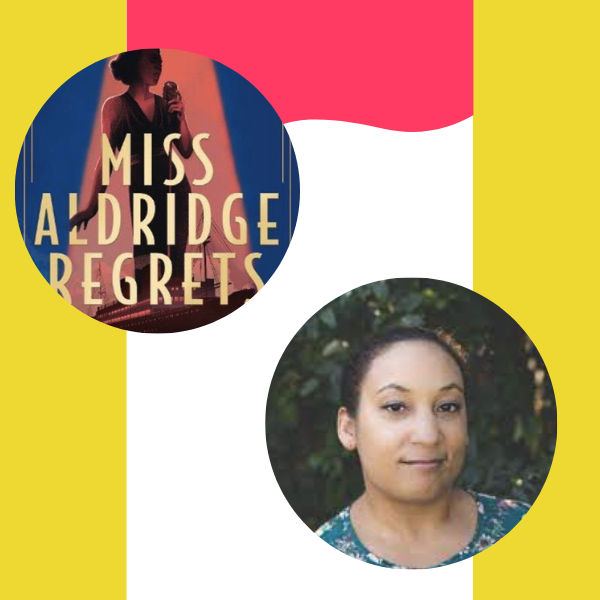[cw: drugs, child prostitution, murder]
Louise Hare wrote the compelling novel Miss Aldridge Regrets. This work of historical fiction kicks off in 1936, a time in which protagonist Lena Aldridge is a nightclub singer in London. She is offered a life-changing opportunity but is suspicious of why she is receiving it. Yet life has always been complicated. Lena has long passed as white to hide her true racial heritage. Her married lover left her. And so, this new opportunity is too good to pass up.
Miss Aldridge Regrets is Louise Hare’s U.S. debut. My conversation with Hare covered how she built the story’s world, how she researched the novel, and the lessons to be learned from Lena owning her dreams and talent.
What is your definition of feminism?
For me, feminism is about equality for everyone. I haven’t always felt welcome in “feminist” spaces, and I know I’m not alone in feeling that way. I think that’s a shame, and a barrier to real progress. We must be open to everyone’s experiences. Intersectionality is vital.
The story takes place on the Queen Mary, in New York, and in London. How did you build the world of your novel?
I live in London, and go out in Soho, so it was easy to imagine Lena on those streets. Several of the places she visits — the Savoy hotel, the Quo Vadis restaurant — are still operating today. The Queen Mary started to feel real to me after I found a website with deck plans and photographs of the ship from 1936. I’m a visual writer — I like to picture my scenes as I’m writing them — so having those resources was incredibly helpful.

What are the regrets mentioned in the title of the novel?
Really, the novel is about Lena putting aside her regrets and trying to learn from her mistakes in a positive way. She’s spent a long time trying to keep her head down and ignore things going on around her, including her own racial identity. For Lena, this voyage is a journey in several senses of the word!
Lena dreams and is hesitant to affirm herself as a singer and emerging performer. Who did you want Lena to become as she owns her talent?
I wanted to feel empowered by the end of the book. At the beginning, she’s blindly following the easiest path and doing as she’s told. Working in a dingy nightclub because she’s lost the confidence to go for auditions. Afraid to assert her identity because she doesn’t have much and she’s too scared to risk it. Through her experiences, she learns to trust herself a little more and realizes that she’s stronger than she thought she was.
Maggie is Lena’s best friend. How did you want their friendship to evolve?
Maggie and Lena have been friends since childhood but Maggie married young — too young — and Lena’s never really had a serious relationship, just affairs. They’re very close but they don’t necessarily have a lot in common anymore. Maggie’s the nearest thing to a relative that Lena has, following the death of her father, and I wanted to have the rug pulled out from under her. When she’s in two minds about accepting the offer to go to New York, it’s when Maggie does something inexcusable that Lena finally decides to take the plunge.
How did you research the time period? How did you imagine and write the story with the research?
I’m lucky that I live reasonably close to the British Library in London. I was able to take out piles of books. I read widely on the 1930s. The rise of fascism in the UK, for example, which gave me ideas for the attitudes of some of the characters. I was able to get hold of books on the Queen Mary that showed me around the whole ship and gave me a taste for what life was like doing that transatlantic crossing in the 1930s. I even managed to check out a copy of the ship’s paper from 1936. I also read novels from the time, focusing on Agatha Christie and others from that golden age of crime fiction.
What organization is important to you that you would like to amplify to our audience?
I give money each month to Arts Emergency, which is a UK charity helping young people to get a fair start in the arts. They run mentoring projects for those from less privileged backgrounds so that there’s a pathway for them to enter industries that are currently underrepresented in terms of people of color, lower-income families, etc. At the moment there’s a real lack of funding in UK educational institutions when it comes to arts subjects, even English, as they’re seen as “less valuable,” which of course isn’t true.


